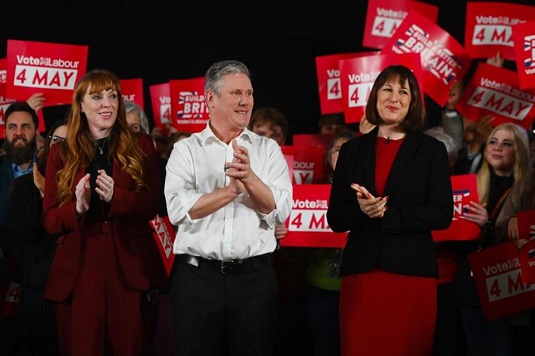
As The Mirror notes, there are peculiar forms of expectations management going on here. Typically the governing party likes to talk up the potential for losses while the main challenger party, in this case Labour, prefers to play down its chances. No one likes a braggart, and even with the polls still very much in Labour's favour the memory of the 1992 Sheffield rally looms large. Though, to be honest, its hubris had little if any impact on gifting us the unexpected Tory win. And the Tories, by conceding that they're going to get a real drubbing they can present losses south of the magic millennium as something of a victory, and proof Sunak's strategy might work, or at least save enough Tories from the chop so they can fantasise about coming back five years later.
Straightening out the spin, might we venture a forecast for the elections to come? Local contests are idiosyncratic, and often refuse to follow the national picture. Notoriously, for example, the 2017 local election results didn't point to a Labour resurgence, nor really did 2019's - the last time most of 2023's seats were up - hint that catastrophe was around the corner. This is because, unsurprisingly, in local elections local issues tend to feature. Think the council have done a good or bad job? Is your local councillor ever-present or an absentee? Is there a popular/unpopular decision that has polarised local opinion? All of these matter and enter into the mix. What political scientists refer to as 'low information voters' might follow the national polls, but as Paula Surridge points out, they're less likely to vote.
The second thing to remember is who the people most likely to turn out are. These are the elderly. As explained so many times here that I wrote a book about it, older people's political preferences bend toward the Conservatives (and the process underpinning this, property acquisition, is breaking down, meaning their coalition of older people is not replacing itself like-for-like as they pass away). Therefore, given how retired people are more likely to vote than working age people anyway the Tories have an inbuilt advantage in second order contests, like local government contests, because this effect is amplified. Turn out falls, but not as much among the older as opposed to younger cohorts. Hence comrades who hail narrow by-election victories in council and parliamentary by-elections as proof that Keir Starmer is a dud have it wrong. There are real problems with the Labour leader, but in these elections he is performing as well as any Labour leader and, I'm sorry to say, better than Jeremy Corbyn did. Therefore, Labour can pretty much always expect to perform better in a general election - when disproportionately Labour-supporting working-age people turn up in greater numbers - than in second order elections. If Labour does well in May then it's set to do even better next year, barring some unforeseen political car crash.
This year, however, the Tories have lobbed in the grenade of voter ID. A transparent attempt at voter suppression in the belief that younger people are less likely to go through the rigmarole of acquiring the identity proofs acceptable at polling stations, this could negatively impact Tory support as well. Many older people might have postal votes, but more of them do not and quite like to amble down to the community centre, school, or village hall to discharge their democratic duty. Will they have acquired the requisite photo ID, especially when some of it involves applying online? I know take up of the internet is much greater amongst the elderly these days but there remains a significant digital divide based around age, and some of them simply won't have bothered. Might the Tories have done us all a solid and inadvertently depressed their own support?
The truth is, forecasting the local elections is a tough call. Labour will pick up the most seats at the Tories' expense, but the challenge will come in local authorities the party already holds. Without much of a positive message to energise support, there could be some problems here - as we saw last year. The Liberal Democrats and Greens will do well too, and the Independents - who had a rare field day four years ago - might see themselves lose big against party-branded challenges. But beyond this, no one can say. The Milquetoast Labour pitch is designed to grab Tory votes, though if this layer wanted to support a conservative party there already is one on offer. But it's too difficult to say what will happen in any detail, except for this. If Labour win big, it will be taken as a vindication of their "hard-nosed" approach. And if not, they will conclude they need to go even further right to win over former Tory supporters and "seal the deal". The Tories may lose and lose hard, but in the end, their politics wins.
Image Credit
1 comment:
Difficult to predict, it's true. The Guardian suggest Labour should gain 700 seats. https://labourhub.org.uk/2023/04/15/keir-starmer-asset-or-liability-to-labours-electoral-chances/ which may be a good place to start.
It's true that if Labour don't do well, its right wing will say the Party needs to move further to the right. But that is what they said in 2015 as well. It didn't add up because Labour lost Scotland that year to a party that positioned itself to Labour's left at the time. So the left needs to make a real effort to get its narrative heard this Msy, especially if Labour perform poorly.
Post a Comment